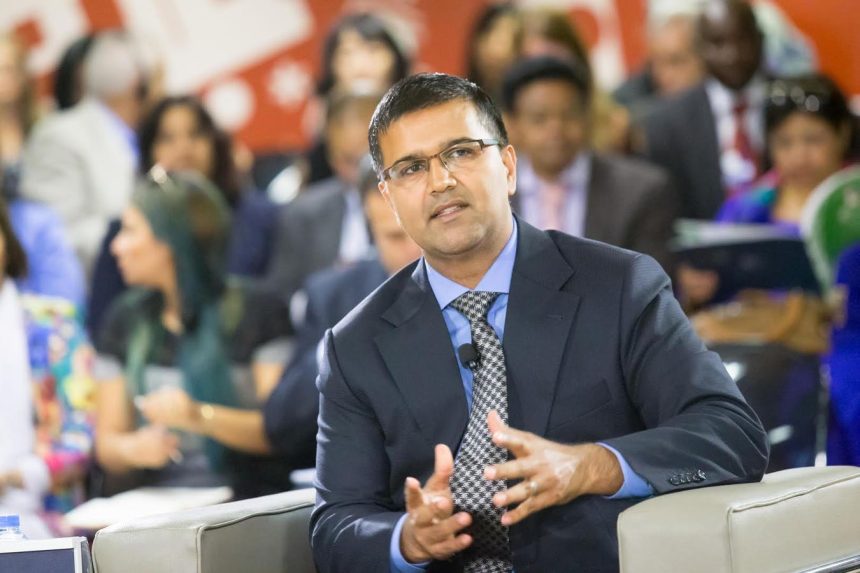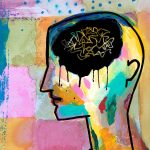Vikas Pota is the founder of T4 Education, an organization dedicated to empowering teachers and classrooms to bring quality education to students worldwide. Pota founded T4 Education following the Covid-19 pandemic and the toll it took on education across the world. Pota has over two decades of experience bringing quality education to the world. He serves on multiple education boards in nations from Jordan to India to the United Kingdom. Pota is also an inaugural member of Sorenson Impact Institute’s Global Impact Leaders, a diverse and inclusive network of impact practitioners and thought leaders working to solve the world’s most pressing social and environmental problems.
In this interview, Pota shares more about his work at T4 Education and explains why education is the key issue that underpins global social inequality.
Please tell us about your work at T4 Education. What project are you excited to be working on right now?
We believe every child, everywhere, deserves a good education. So many of the best-intentioned interventions fail because of a lack of organizational culture. Schools are not able to attract and retain the best teachers, they do not offer teachers the professional development and mentoring they need to succeed in the classroom, and teachers are not given the vision and leadership they need to truly transform learning. This is all part of the hidden curriculum in which what a school embodies — for its staff and students — is as important as what it teaches.
Research shows that the key to improving learning outcomes, attracting and retaining the best teachers, and developing them for success is building a great school culture and working environment led by principals with vision. However, bringing together all the essential elements of a great school culture can be a huge challenge for head teachers.
We are very excited to launch our new Best School to Work program. It’s the gold standard for good school culture: an independent, evidence-based mechanism for certifying those schools that have built the best working environments for their educators but also providing detailed feedback, actionable insights, benchmarking data, and courses led by award-winning school leaders to help everyone raise their standards.
A good school culture ensures teachers are valued and empowered; this boosts teacher retention and recruitment, and education flourishes as a result.
Why should education receive a greater focus from the impact field at this time? How can we maximize our efforts to solve this issue at scale?
Education underpins absolutely everything else.
If we want to talk about lifting people out of poverty, reducing inequalities, tackling prejudices, skilling the next generation to face a job market being transformed by technology, training the scientists and leaders who will answer the greatest challenges we face from climate change to pandemics and food insecurity, then at the root of it all is a good education. Unfortunately, in times of economic turmoil, as governments look to balance budgets, it’s often education that falls by the wayside and becomes an afterthought. So we’re not going to get to where we need to be by waiting for top-down reforms to get it right. We need a grassroots movement led by teachers, those at the heart of education.
That’s why T4 Education works to amplify the teacher’s voice, galvanize a community for change, surface the expertise of trailblazing schools, and give them a global platform through our prizes, research, and programs to share their best practices and innovative ideas for change. Solving these urgent problems means backing schools and educators all the way.
The Global Impact Leaders network was formed to recognize, elevate, and amplify the contributions of those working to solve the world’s most pressing social and environmental problems. What does being part of this inaugural group mean to you?
When you’re setting out to solve some of the world’s greatest challenges – in our case, the global education crisis – the most humbling and important admission we must make is that no one can do it alone.
Leaders who are serious about building lasting change must recognize that they do not have all the answers. Rather, we are just cogs in a much bigger wheel. I think of all the people I’ve met trying to transform education while traveling the world, first as the CEO of a philanthropic foundation and now as Founder and CEO of T4 Education – from presidents and prime ministers to the biggest figures in the public, private and NGO sectors, from celebrities using their platforms to advance good causes to classroom teachers making a difference at the coalface every single day – and I see the part we all have to play. We all have to play it together if we’re going to solve the colossal challenge before us.
And that’s just focusing on one Sustainable Development Goal – SDG 4, universal quality education. Looking at the multitude of distinct but interlinked social and environmental challenges that face our world today, from climate change to poverty and disease, there is a real need for a meeting of the minds for leaders across disciplines to share their insights and experiences and to amplify one another’s work. We are far stronger together than we can ever be alone. That’s what this new group means to me, and I am grateful for it.
What do you hope this group will achieve?
Despite the huge collective international undertaking of agreeing on the UN Sustainable Development Goals and the progress the world has made to date, it’s a sad fact that the world is way off course to meet its goals. Again, let’s just take SDG 4 as an example. Even before the pandemic, the UN was warning this vital objective was on course to be missed. But with COVID impacting 1.5 billion learners shut out of schools and universities, that mountain has only become steeper, especially in low- and middle-income countries where the rate of learning poverty has increased by a third. Pre-COVID, 57% of 10-year-olds in these countries could not understand a simple written text – today, it is 70%.
It’s a similar picture across so many other measures of societal progress. The gulf between hope and reality is not down to a lack of will. There is no shortage of organizations and leaders with the best intentions and even significant resources to tackle the global education crisis. But the truth is, no one organization —or even one collaboration between organizations — can address the whole problem. All we can do is focus on one area where we have the skills, expertise, contacts, and resources to make a tangible difference, but we can never lose sight of where we fit in the larger picture.
I hope that by bringing together leaders with so many different skills and experiences from across so many different fields, we can all find our place in pursuit of our common objectives and elevate each other’s work to make a difference.
What are your hopes for the future of impact?
It’s easy to look at how far we have to go if we are to meet the SDGs by 2030 and become disheartened. But the truth is, the world has made phenomenal progress in recent decades across all sorts of measures.
Let’s take global poverty, for example. In 2019, over a billion fewer people were living in extreme poverty than in 1990. But we have a long way still to go, with the World Bank estimating there are still 650 million people living on less than $2.15 a day. And if we’re to measure society’s progress in its efforts to tackle greenhouse gas emissions, curb the use of fossil fuels, and prevent catastrophic climate change? Well.
The biggest problem we face as a planet is the quality of political leadership. Governments come and go. Thinking is too short-term. Actions are too timid. The recent rollback of environmental commitments here in the UK is an example of that. We’re not going to see the change we need if we look only to politicians for answers. Thankfully, leadership comes in many forms across many sectors, from charities and NGOs to businesses and institutions. There is a wealth of knowledge and experience that, correctly harnessed and working in concert can bring about transformation.
That’s the hope I have for impact: Inclusive, empathic, passionate leaders from all fields unite to take up the torch of change.
What keeps you inspired in your work?
Education has always been important to me from an early age. My father passed away when I was very young, and my family fled Kenya amid violence and political uncertainty at a time when Idi Amin’s campaign against Asians in neighboring Uganda was still a recent memory, so my mother had to bring us up on her own in London. Despite not speaking any English, she worked every hour she could to look after my sister and me. The most important piece of advice she gave me was to do everything I could to get a good education because all those who she could see prospering had one.
This early lesson instilled in me the passionate belief that every child deserves a good education to fulfill their full potential and that we as a global society cannot rest until that is achieved. Through all the work I’ve done as the Chief Executive of a philanthropic foundation for a decade, and now at T4 Education, I have come to see that the biggest thing we can do to help achieve this is to empower teachers and by doing so, build grassroots change because we can’t just wait around for top-down reform.
Read the full article here





